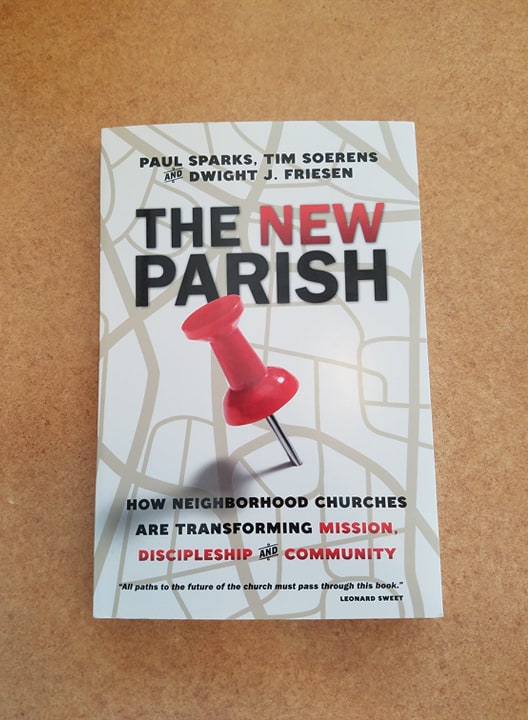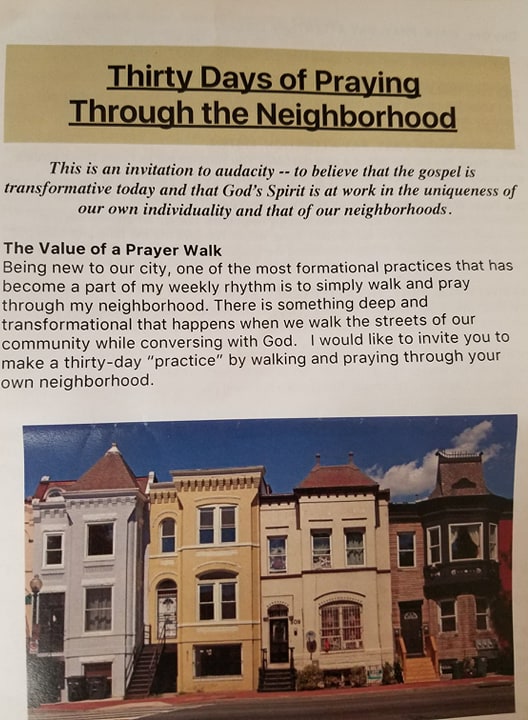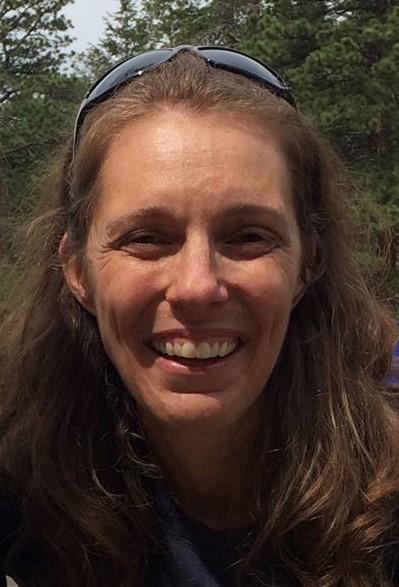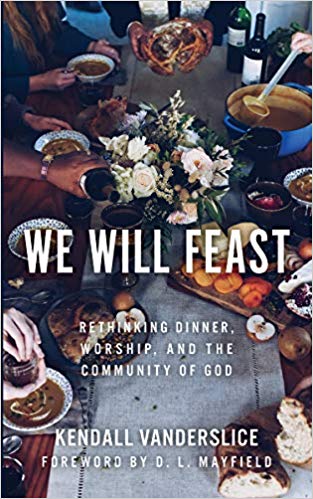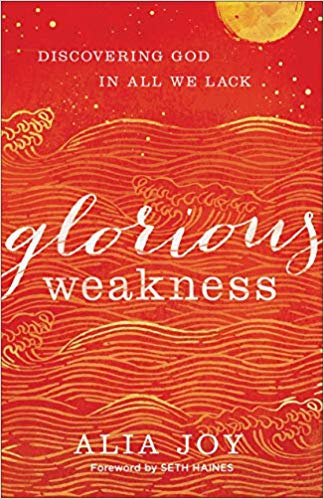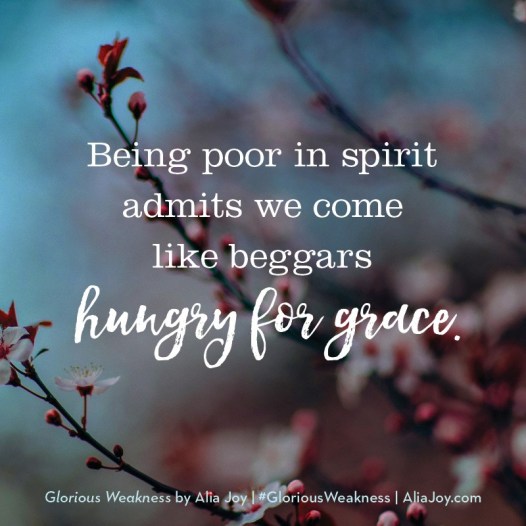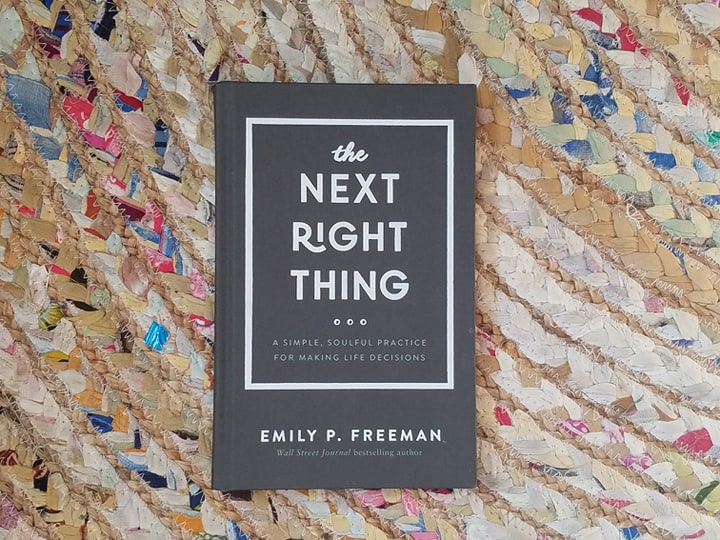
Author Emily P. Freeman is not only a podcaster and business woman, but a modern-day contemplative who shepherds readers into inner peace as she provides practical, reflective solutions for making decisions. The Next Right Thing: A Simple, Soulful Practice for Making Life Decisions is a book for the uncertain, the undecided, or the anxious. It is both practical and reflective, grounded and imaginative. Freeman confronts decision fatigue and provides the reader with ideas on untying the knots that bind and prevent us from moving forward. Freeman expertly guides readers into more freedom, peace, and confidence.
I wish I had read this book between 1996 and 2006, when I was making decisions about college, my major, dating, and whether or not to move overseas. But even now that I am a forty-year old married woman with degrees and kids, The Next Right Thing reminded me to live life on purpose, pay attention, and filter my seemingly unimportant decisions through a simple sieve: Is this life-draining or life-giving?
Freeman begins each chapter with an inspirational quote from another author, but largely shares her own reflections on decision making in twenty-four compact chapters. So many authors flood their books with quotes from others, not trusting their own words, but rather than borrow from others, Freeman contributes her own wisdom to the world. Freeman concludes each chapter with a prayer and a spiritual practice, reminiscent of what a spiritual director might prescribe. Rather than reading straight through quickly, this book lends itself to being read slowly and thoughtfully, perhaps reading a chapter a day or even one a week.
If you struggle with making decisions, or simply need a book to remind you to pay attention and do some soul work, then this book is for you. Reading The Next Right Thing felt like opening a window and welcoming a breeze into a musty room.

EMILY P. FREEMAN is the author of Simply Tuesday and A Million Little Ways. As host of The Next Right Thing podcast, she helps create space for the soul to breathe, offering fresh perspective on the sacredness of our inner life with God. Emily and her husband live in North Carolina with their three children.
**Currently on Amazon for $8.92;-)
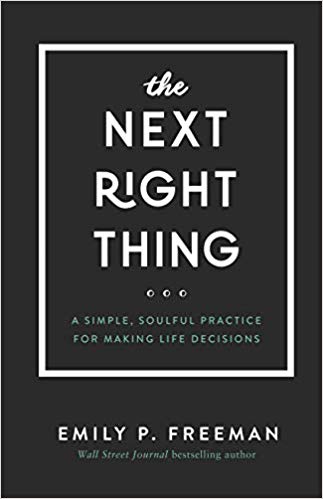
I’m giving away a copy of The Next Right Thing, so head over to my Instagram post. To enter, simply like the post, follow me, and then sign up for my newsletter in my profile (and I’ll send you the first chapter of MY book!!!). If you’re already a newsletter subscriber, then tag up to four friends you think might enjoy this book and you’ll receive one entry per friend that you tag (no tag backs, please!). Giveaway ends Monday (6/24/19) at midnight (MT). This is not sponsored by or affiliated with Instagram.
Sign up for the monthly-ish newsletter and I’ll send you the first chapter of my book!
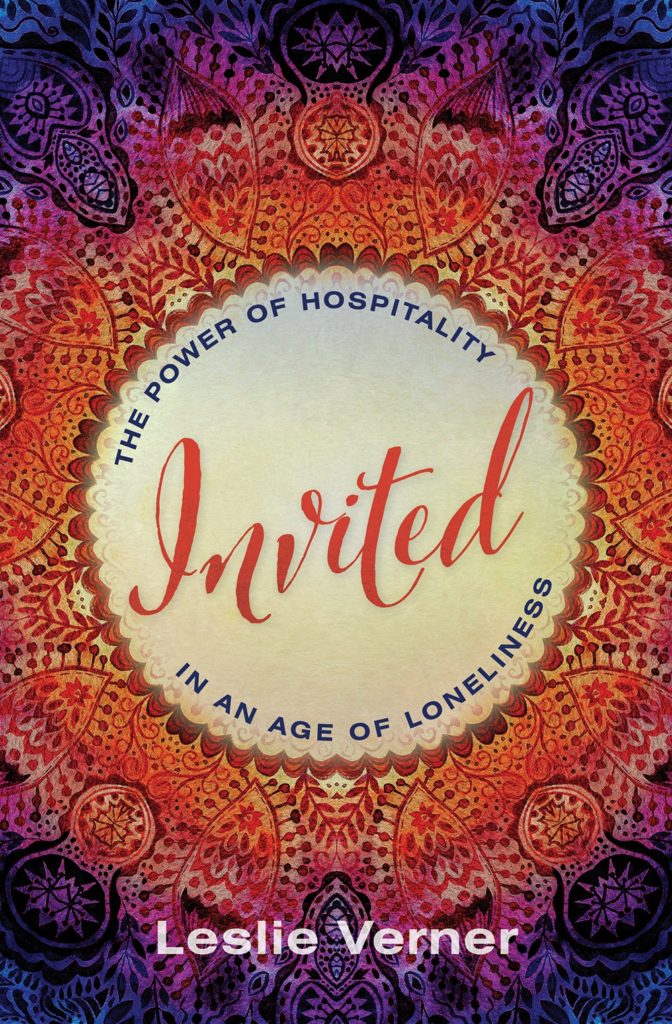
My new book Invited: The Power of Hospitality in an Age of Loneliness is now available for pre-order! You can read about the book as well as some of the advance praise for the book by visiting this page. Sign up for my newsletter above to keep up-to-date on pre-order bonuses, book recommendations, and more!




